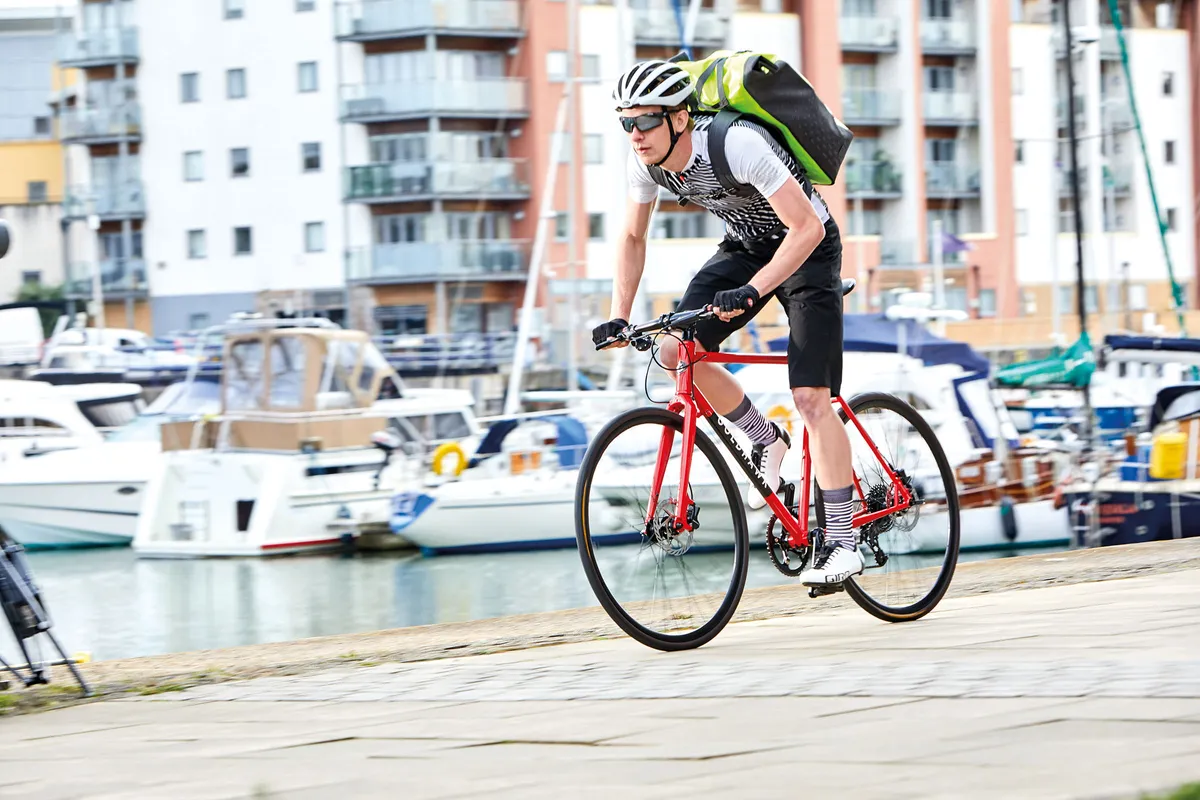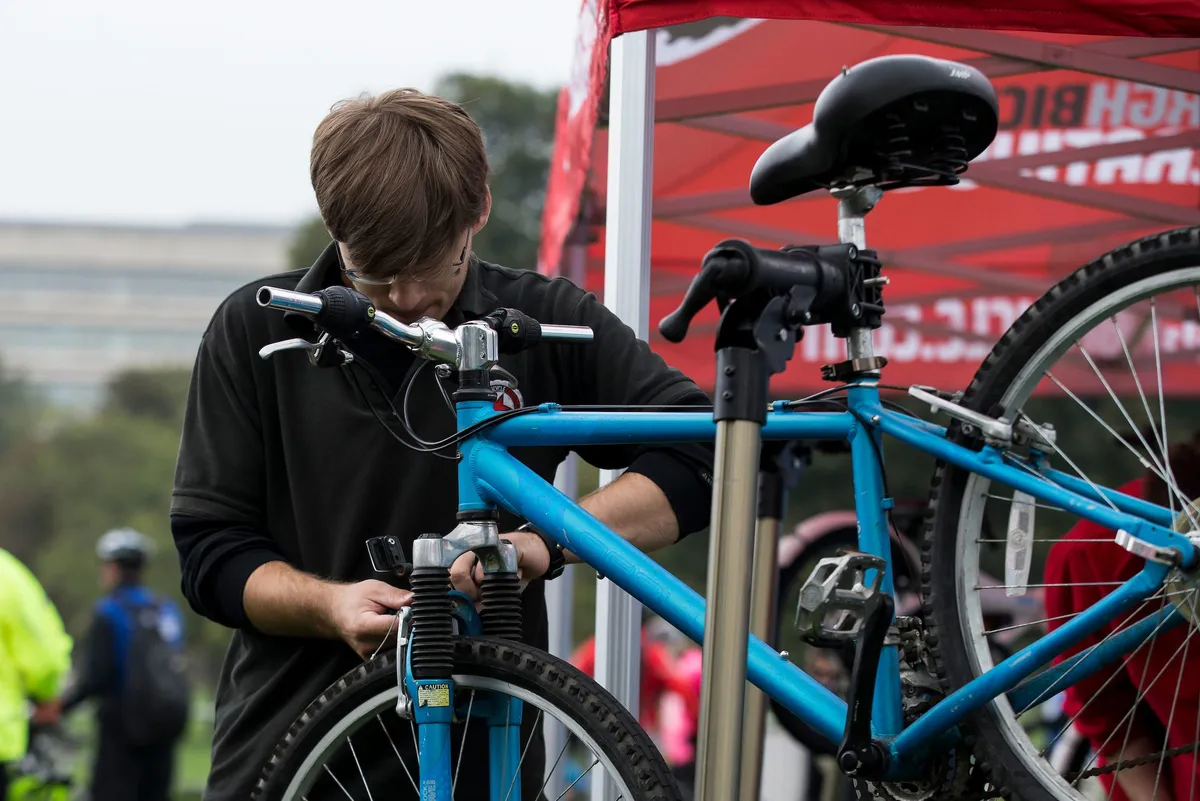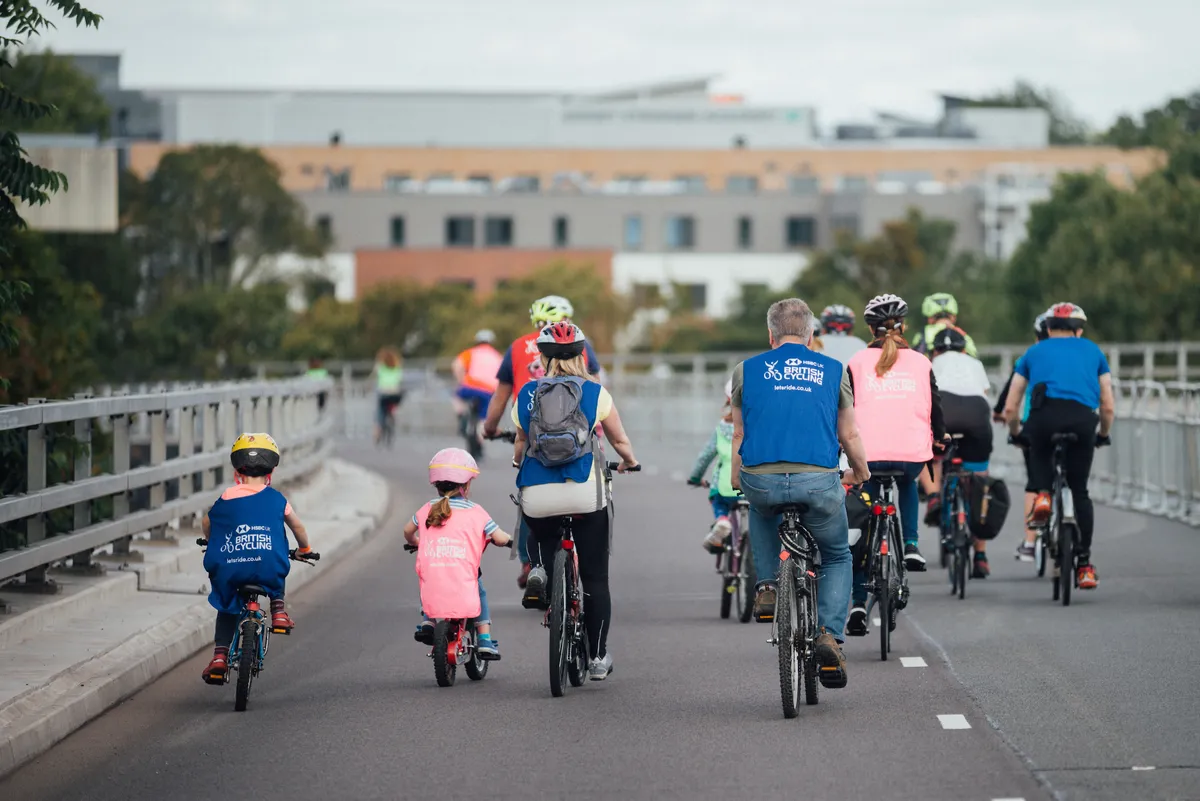The transport secretary has laid out plans to “create a new era for cycling and walking” in response to the coronavirus crisis, with the government to put active travel at the heart of its strategy.
Grant Shapps detailed a raft of measures – both short-term and long-term – in Saturday's UK government coronavirus briefing (9 May), including a £250m "emergency active travel fund".
The emergency fund is the first stage of a broader £2bn investment in walking and cycling outlined by Shapps, though that funding is part of the £5 billion package announced for cycling and buses in February.
An updated Cycling and Walking Investment Strategy will also be launched in the summer, with the aim of doubling participation by 2025.
The measures announced by Shapps today include:
- Emergency active travel fund to help create pop-up cycle lanes, wider pavements, improved junctions and cycle and bus-only corridors in England “within weeks”
- Fast-tracked statutory guidance, effective immediately, will tell councils to reallocate road space for “significantly increased numbers of cyclists and pedestrians”
- Vouchers will be issued for cycle repairs, “to encourage people to get their old bikes out of the shed” (Update 28/07/20: the Fix Your Bike voucher scheme has now been officially launched)
- Plans to develop “greater provision of bike fixing facilities”
- Government to work with tech sector to develop apps to advise on public transport capacity
Shapps’ briefing comes ahead of Boris Johnson’s announcement on Sunday, when the prime minister is expected to announce a modest easing of lockdown restrictions in England.
Shapps says the transport network will have a “critical role” to play in the UK’s coronavirus exit strategy. Public transport capacity will be severely restricted in order to maintain social distancing, he says, with active travel to provide a greener, healthier alternative. In England (excluding London), 2011 census data showed 44 per cent of commutes are less than 3 miles.
"During this crisis, millions of people have discovered cycling – whether for exercise or as a means of safe, socially-distanced transport,” said Shapps.
“While there is no change to the ‘stay at home’ message today, when the country does get back to work we need those people to stay on their bikes and be joined by many more.

“Otherwise, with public transport’s capacity severely restricted at this time, our trains and buses could become overcrowded and our roads gridlocked – holding up emergency services, critical workers and vital supplies.
“We know cars will continue to remain vital for many, but as we look to the future we must build a better country with greener travel habits, cleaner air and healthier communities.”
The Department for Transport says the government will fund and work with local authorities to improve cycling provision, citing plans to create 150 miles of protected cycle lanes in Greater Manchester, and Transport for London plans to create a “bike tube” above London Underground lines.

New statutory guidance, published today, could see streets could become bike and bus-only, according to the DfT, while side streets could be closed to through traffic to reduce rat-runs.
The Department for Transport has also announced a campaign – #GetPedalling – with Team Ineos. Team principal Sir Dave Brailsford said: “If ever there was a good time to get on your bike, it's now.
“You will be helping take pressure off public transport. You will be looking after your health. You will be looking after the health of others and you will be helping the environment. Let’s all get pedalling and help Britain on the road to recovery.”

Long-term, an updated Cycling and Walking Investment Strategy will be launched by the prime minister this summer, with additional measures to “transform cycling and walking” and double uptake by 2025.
According to the Department for Transport, this will include:
- The creation of a national cycling and walking commissioner and inspectorate
- Higher standards for permanent infrastructure across England
- Getting GPs to prescribe cycling and exercise
- Creating a long-term budget for cycling and walking, in a similar vein to the road budget
As part of the government’s active travel review, e-scooter trials will be brought forward from next year to next month.
An additional £10 million has also been committed to help local authorities install up to 7,200 charging points for electric vehicles.
Finally, a consultation will be launched with an aim to "make charging electric vehicles just as easy as filling up a traditional petrol or diesel car”, according to the Department for Transport.
